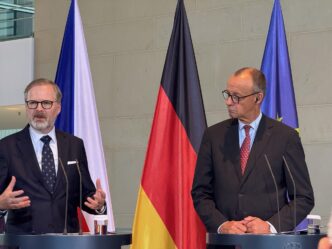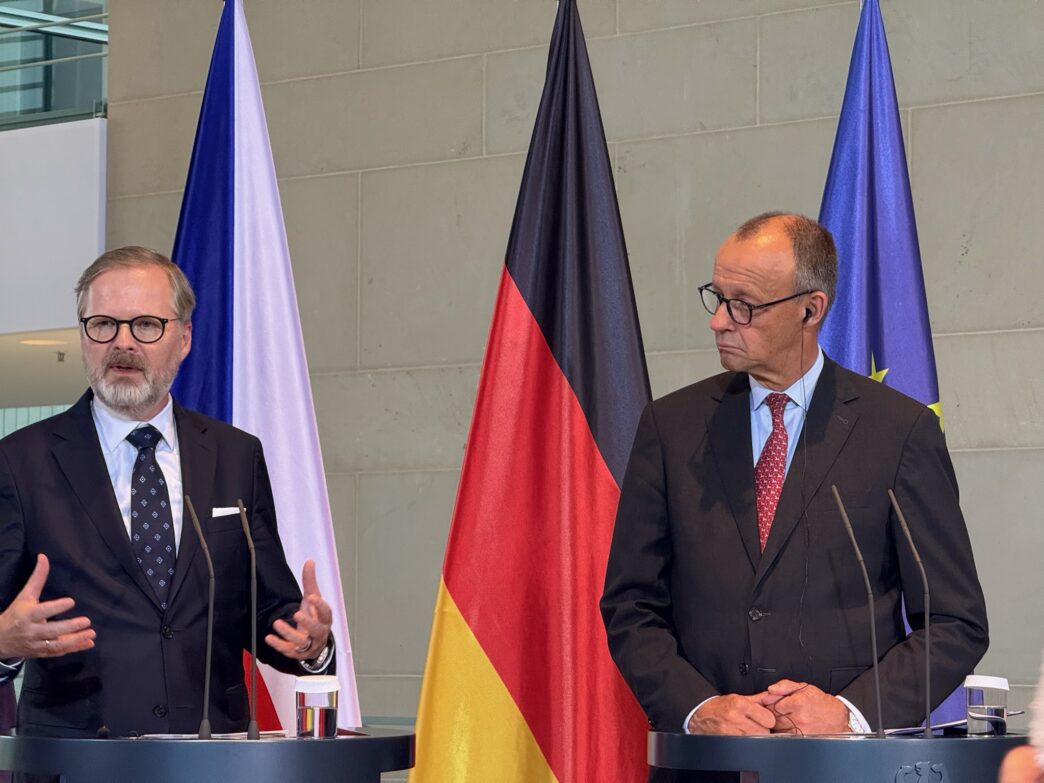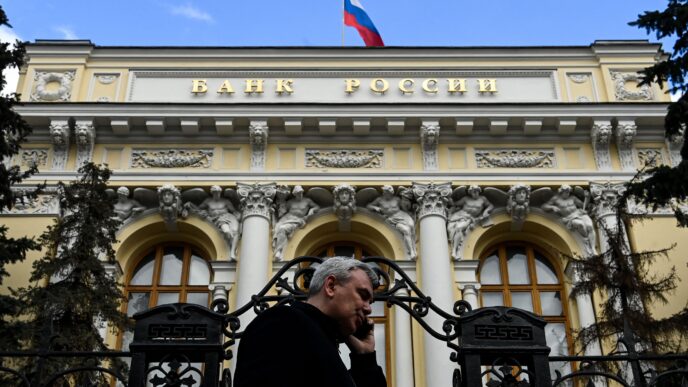This evening, Czech Prime Minister Petr Fiala arrived in Berlin for an official visit and was received by German Chancellor Friedrich Merz with military honors — the first such ceremonial welcome for a Czech prime minister since 2018.
Fiala, who has led the Czech government since 2021, met with Merz to discuss key issues including border control, illegal migration, defense cooperation, economic ties, and infrastructure development. While expressing understanding for Germany’s decision to tighten internal border checks, Fiala emphasized the need for a pan-European solution to manage illegal migration.
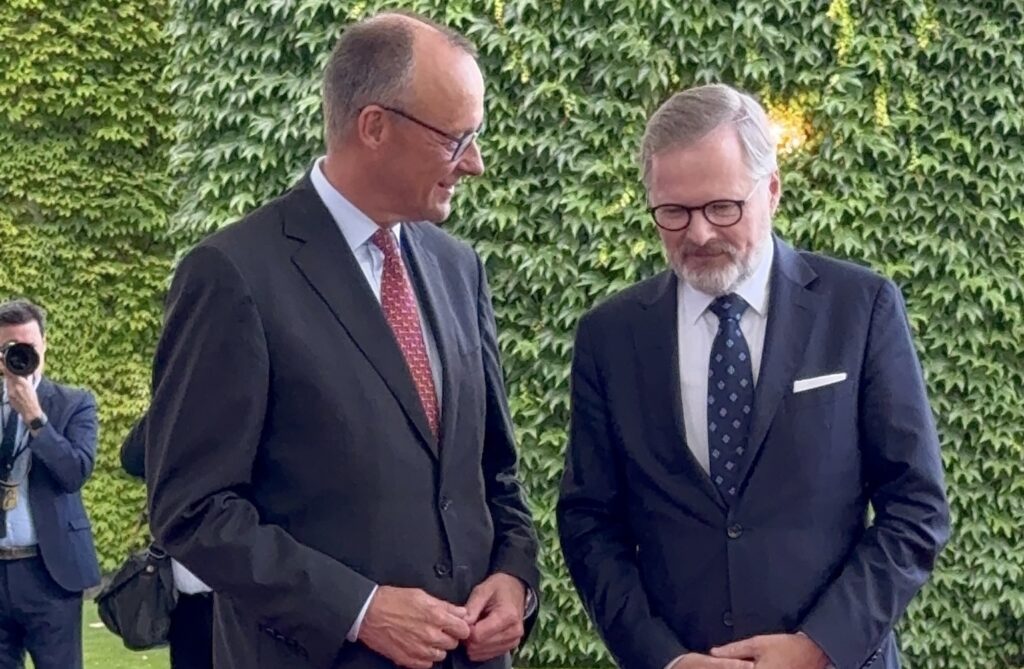
Both leaders agreed that tackling illegal migration is essential to counter the rise of populism across Europe. “If we don’t offer real solutions, populists will fill the vacuum,” Fiala warned. Merz added that while there are ongoing discussions with neighboring countries, there is no fundamental disagreement about the necessity of border measures.
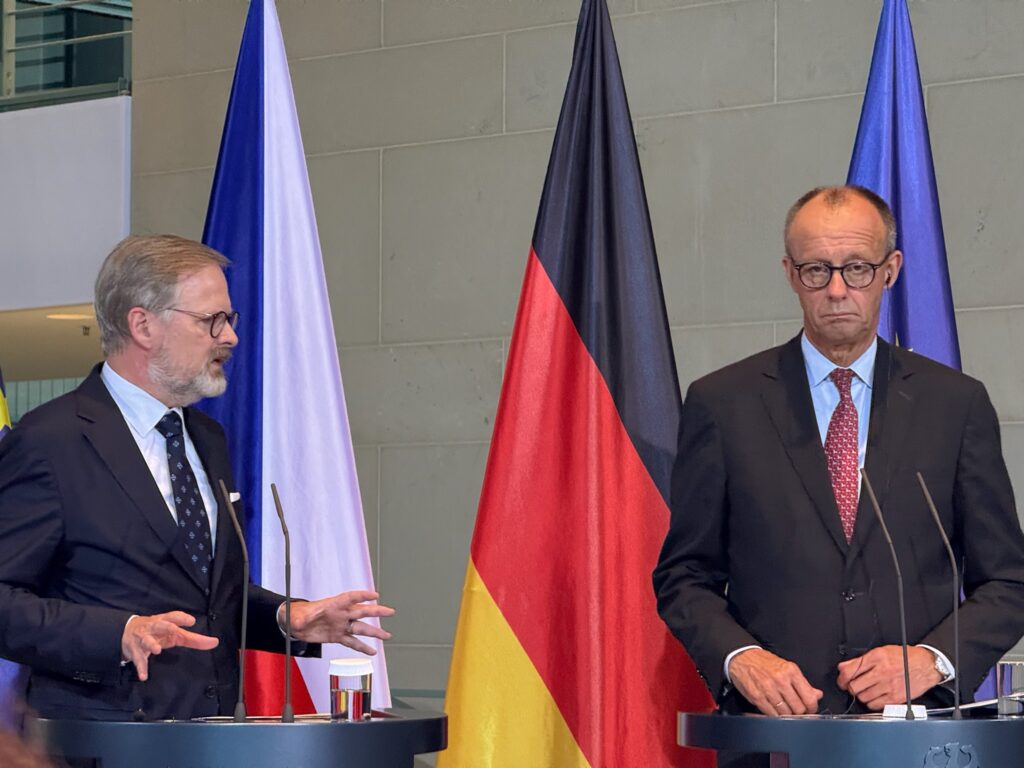
On defense, Fiala expressed the Czech Republic’s interest in closer cooperation, particularly in the production of German Leopard tanks and the American F-35 fighter jet program. He stressed that Czech companies aim to participate not only for domestic needs, but also as part of broader industrial supply chains. Both leaders reaffirmed their continued support for Ukraine, including through the Czech-led initiative to procure ammunition.
The two sides also addressed transport infrastructure, highlighting plans for a high-speed rail line between Berlin and Prague, which would reduce travel time to two hours. A similar project is under consideration for the Prague–Munichcorridor.

During a joint press conference, Merz spoke about Germany’s decision not to sign the recent declaration by 28 countries calling for an immediate ceasefire in the Gaza Strip. He said Germany’s stance is “virtually identical” to that of the European Council, and underscored his own efforts to push for a halt to Israeli military operations and humanitarian access for civilians in Gaza.
The declaration — signed by countries including France, the UK, and Italy — accuses Israel of violating international humanitarian law and describes the situation in Gaza as inhumane. Germany has adopted a more cautious tone, though the SPD parliamentary faction in the Bundestag has called on the government to support the declaration.
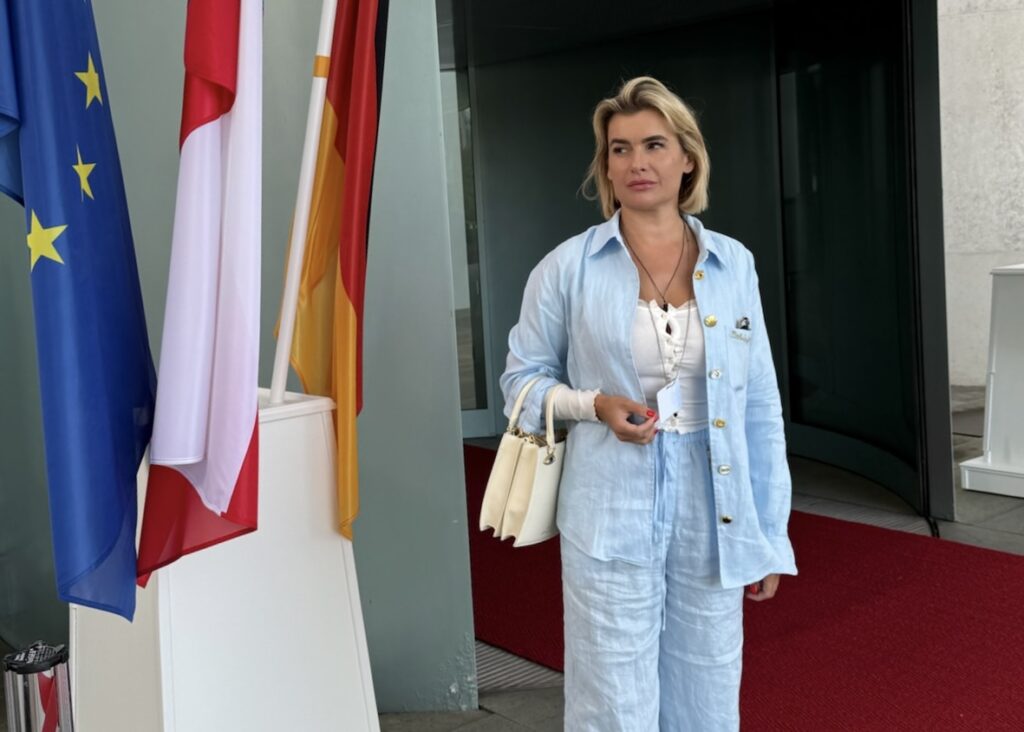
The humanitarian crisis in Gaza continues to worsen. According to the United Nations and the Palestinian Ministry of Health, more than 1,000 people have been killed, and the region faces severe hunger, ongoing military strikes, and a near-total blockade of aid. Israel reportedly plans to establish a camp for 600,000 displaced Palestinians in southern Gaza, where residents would face restricted freedom of movement.
Human rights groups have accused the Israeli government of ethnic cleansing and using starvation as a weapon of war. The International Court of Justice in The Hague is currently examining charges of genocide.
Source: Berlin Telegraph

